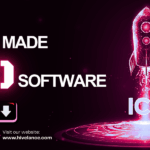The hiring landscape is evolving rapidly, and Artificial Intelligence (AI) is at the forefront of this transformation. From screening resumes to analyzing candidate behavior, AI is revolutionizing the way companies find, assess, and onboard talent. For businesses looking to stay competitive, leveraging AI in recruitment is no longer optional—it’s essential.
Smarter Screening, Faster Shortlisting
One of the biggest challenges in hiring is sifting through hundreds (or thousands) of resumes to find the right fit. AI tools can automate resume screening using natural language processing (NLP) and machine learning to identify keywords, skills, and experiences relevant to the job. This significantly reduces time-to-hire and ensures no great candidate slips through the cracks due to human oversight.
Bias-Free Decision Making
Unconscious bias can creep into hiring decisions, even with the best intentions. AI Hiring, when designed ethically and trained with diverse data, can help eliminate bias by focusing purely on qualifications, experience, and relevant competencies. By standardizing evaluations across all applicants, AI contributes to fairer hiring practices and supports diversity and inclusion efforts.
Enhanced Candidate Experience
AI-powered chatbots and virtual assistants offer immediate responses to applicant queries, schedule interviews, and provide real-time updates—greatly improving the candidate experience. A smooth, responsive hiring journey not only helps retain top talent but also enhances your employer brand.
Predictive Analytics for Better Hires
AI doesn’t just streamline the process—it helps make smarter hiring decisions. Predictive analytics can assess how well a candidate is likely to perform in a specific role based on historical data, personality assessments, and behavioral indicators. This reduces guesswork and helps recruiters make data-driven decisions that align with long-term business goals.
Automation Without Losing the Human Touch
There’s a misconception that AI removes the human element from hiring. In reality, AI frees up recruiters from repetitive tasks so they can focus on building genuine relationships with candidates. By handling administrative workloads, AI allows hiring teams to invest more time in interviews, team fit assessments, and culture alignment.
Real-World Impact
Companies using AI in hiring have reported dramatic improvements in efficiency and quality of hire. For example, platforms like SmoothHiring leverage AI to automate screening, match candidates based on job compatibility, and provide actionable insights to recruiters—all while maintaining compliance and data security.
Conclusion
AI in hiring is not about replacing human recruiters—it’s about empowering them. By automating the mundane and offering deeper insights, AI enhances every stage of recruitment. Businesses that adopt AI-driven hiring solutions not only gain a competitive edge but also build stronger, more diverse teams ready to take on the future.




